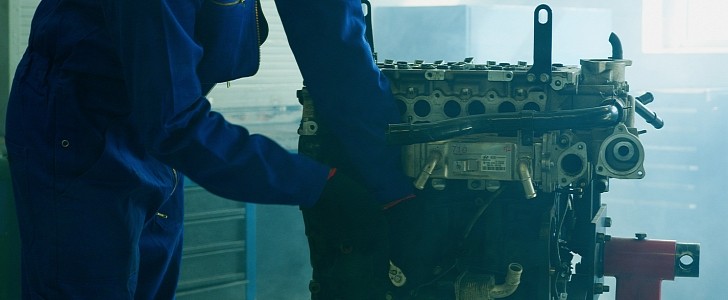I don’t know about you, but I shudder at the thought of 630,000 people or more losing their jobs in the auto industry by 2030.
Whether you believe in global warming or not is irrelevant. What truly matter are the undisputable ramifications that are happening and will continue to happen in the fight against climate change.
We all want cleaner air to breathe, for us and ideally for future generations as well. But for this entire thing to work out in the end like we collectively envisioned, there will be a steep price to pay during our lifetime. And the ones that will take the full impact of the blow will be the auto workers of today.
People that spent years or even decades training and learning how to put together all the technologies needed to run a vehicle with an internal combustion engine. Technologies that electric cars don’t need. And besides that, car companies require less manpower for the electric vehicles production line while not sacrificing their output.
In 2021, a research article stated that in the U.S. alone, “due to manufacturing policy inaction, a rise in BEVs to 50% of domestic auto sales by 2030 could see losses of roughly 75,000 jobs by 2030.”
Another study carried out in 2021 by the European Association of Automotive Suppliers claims that while 226,000 new jobs could be created in EV powertrain production, that would also mean a loss of 275,000 jobs until 2040.
Furthermore, no less than 501,000 people working in the auto supplier section in the internal combustion engine powertrain components production are also projected to be made redundant if said technology will gradually be taken out of production by 2035. Out of these jobs, 70% are expected to be obsolete within just a five-year period, between 2030 and 2035.
This sounds very concerning indeed, but to be fair, it’s not all doom and gloom, because the other half of the balance tends to shift in a positive direction for the most part.
Boston Consulting Group said that even though 630,000 jobs could be lost by 2030, another 580,000 jobs regarding battery production and charging infrastructure, along with other types of jobs including services might be created to compensate.
Important to note that these are just projections for the future, they’re not set in stone. Things could change at any given moment due to political instability, economic destabilization, wars, or any such ripple effect phenomenon.
We all want cleaner air to breathe, for us and ideally for future generations as well. But for this entire thing to work out in the end like we collectively envisioned, there will be a steep price to pay during our lifetime. And the ones that will take the full impact of the blow will be the auto workers of today.
People that spent years or even decades training and learning how to put together all the technologies needed to run a vehicle with an internal combustion engine. Technologies that electric cars don’t need. And besides that, car companies require less manpower for the electric vehicles production line while not sacrificing their output.
In 2021, a research article stated that in the U.S. alone, “due to manufacturing policy inaction, a rise in BEVs to 50% of domestic auto sales by 2030 could see losses of roughly 75,000 jobs by 2030.”
Another study carried out in 2021 by the European Association of Automotive Suppliers claims that while 226,000 new jobs could be created in EV powertrain production, that would also mean a loss of 275,000 jobs until 2040.
Furthermore, no less than 501,000 people working in the auto supplier section in the internal combustion engine powertrain components production are also projected to be made redundant if said technology will gradually be taken out of production by 2035. Out of these jobs, 70% are expected to be obsolete within just a five-year period, between 2030 and 2035.
This sounds very concerning indeed, but to be fair, it’s not all doom and gloom, because the other half of the balance tends to shift in a positive direction for the most part.
Boston Consulting Group said that even though 630,000 jobs could be lost by 2030, another 580,000 jobs regarding battery production and charging infrastructure, along with other types of jobs including services might be created to compensate.
Important to note that these are just projections for the future, they’re not set in stone. Things could change at any given moment due to political instability, economic destabilization, wars, or any such ripple effect phenomenon.







